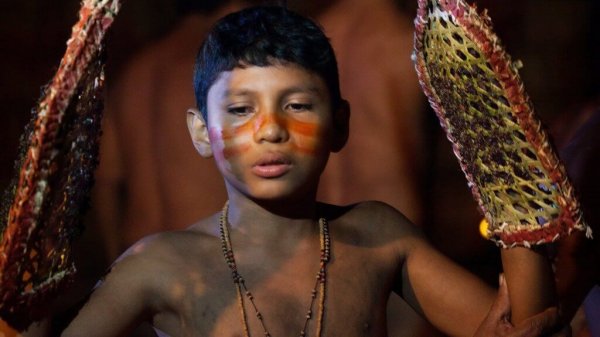(Stillness in the Storm Editor) Social rituals exist for a good reason, as a way for the individual to gain acceptance in a culture. For the individual, they show them the norms they need to embrace in order to be included in a social group.
These norms establish a basic ruleset that helps guide social interaction.
For instance, in the West, school acts as a kind of social trial, where children learn how to interact with other people, leaning on social norms they picked up from their parents. Without social norms, you won’t know how to act with people you haven’t established rapport with yet.
Thus, while social norms can be distorted, destructive, harmful, and superstitious, they exist for a practical reason.
A culture acts as a storehouse of social rules. And again, despite the fact most cultures are hardly perfect, without this component to human life, as individuals we wouldn’t know how to act around each other. Consider that how you decided to eat in a public space was largely transmitted to you through social indoctrination in your family.
The challenge of any culture is to develop the ability to look past dogmatic tradition, for practical utility.
By this, I mean, social norms should be evaluated for how effective they are in meeting the needs of a people. Social norms should provide a way for individual values and needs, which we almost all share to some degree, so they can be expressed in a harmonious way. When a culture fails to address the needs of a people, when it upholds superstition oppose to progress in the face of a needed change, then that culture becomes an obstacle for human evolution instead of a shepherd.
Most of the cultures presented below are superstitious in orientation. People engage in these rites because they have to, because it’s what everyone else does. But not from a place of understanding why or what effect they’ll have in maintaining order.
It’s this dogmatic, unconscious, extrinsic aspect of social norms that can be harmful. And it’s the duty of the individual, especially the free thinkers who dare to question why people do what they do, that helps raise a social norm out of dogmatic obscurity, to the place of conscious utility.
In order to evolve beyond superstition, a culture needs to encourage philosophic exploration. The reasons why we do what we do need to be explored, discussed, and debated, in a public way, so new social norms can replace old and less effective ones.
The reason why people cling on [get it?! Klingon] to old traditions is because they don’t know why a tradition is important. Without the why the social need becomes unconscious; and this means changing it feels like a loss of social attachment for the one adhering to it blindly. We’re hardwired for social attachments, and if you feel like you’re losing one, ancient defense mechanisms come online that block higher-order thinking in the neocortex. Thus, most cultural norms are a kind of mass unconscious social attachment system, which makes changing them very difficult without recognizing the psychological principles at work.
Changing culture takes time. In the past, socialist revolutionaries incorrectly assumed wholesale shifting of culture could be affected. And while this can happen, the cost is devastating.
Changing cultural norms, in order to be honorable form a lawful sense, has to be consensual. Culture is an aggregation of people. People have free will and rights. A culture must provide a way for the individual to debate the merits of a social norm, so that true consent can be garnered. If not, then the culture ends up suppressing human beings instead of providing a guide for expressing their full potential.
In time, humanity will learn of these realities and develop social systems that incorporate the benefits of the past (conservatism) while incorporating developments of the future (progressivism).
– Justin
Related Introverts Don’t Hate People, They Hate Shallow Socializing
by Staff Writer, September 25th, 2019
It isn’t easy to choose a selection of the strangest social rituals in the world. If you delve a little deeper into the subject, you’ll realize that the planet is full of customs that are very different from your own. Most of them are surprising and some are downright strange.
Social rituals or rites celebrate the most important moments in life as a community. The main ones are births, deaths, becoming an adult, and marriage. They are times of great change, and that’s why they end up being represented by so many rituals.
In the West, there are also rituals that might seem strange to those in other parts of the world. However, some of the rituals are actually more similar to ours than they seem at first glance. The way of doing it changes, but what they’re trying to represent is the same. Thus, let’s look at five of the strangest social rites in the world.
“”What is a rite?’”asked the little prince. “Those also are actions too often neglected,” said the fox. “They are what make one day different from other days, one hour from other hours.”.”
-Antoine de Saint-Exupéry-
Buy Book Fire in the Minds of Men: Origins of the Revolutionary Faith
The world’s strangest social rituals
1. The initiation ritual of the Satere-Mawé tribe
Initiation rituals, especially for men, often include cruel or very difficult practices that they have to overcome. Some of the strangest social rites in the world are initiation rites. One of the strangest takes place among the Satere-Mawé tribe, a community that lives in the Amazon and has barely come into contact with Western civilization.
You may not have heard of the Satere-Mawé, but you may have heard of guarana. This tribe was the one that discovered its special properties and shared it with the West. Well, in this community, for a child to be accepted as a man, they must go through an extremely difficult test. They have to put on gloves full of bullet ants, 20 times in a row, and for a period of about 10 minutes.
Bullet ants cause very painful bites, which some compare to touching a hot iron. During the ritual, many people faint, and recovery can take several weeks. However, the prize is that they are accepted as adults within the tribe.

2. The Yanomami have one of the strangest social rituals
Death is another circumstance that gives rise to some of the world’s strangest social rites. The Yanomami, who live in the jungle areas of Venezuela and Brazil, perform a very curious ritual. When someone dies, their body is left exposed for a day. The next morning, women have to paint their faces in a dark color in order to express their sorrow. They also have to cry.
All the deceased person’s belongings are placed next to them, and are set on fire along with the deceased. If they don’t burn completely, then it’s because the person did something that can’t be forgiven. The following month, the family have to return, collect the ashes, and pour them over a banana soup, which everyone eats. It’s a way for the deceased to remain within those who survive.
Buy Book The Golden Dawn: The Original Account of the Teachings, Rites, and Ceremonies of the Hermetic Order
3. A death ritual in the Baliem Valley
In Papua New Guinea, there’s a tribe called the Dani. They celebrate one of the world’s strangest social rites, and it also has to do with death. When a man dies, then the women and children of the family have to have one of their fingers amputated. The person in charge of doing this is a priest.
The priest observes the reaction of women and children at the time of amputation. If they resist or show a lot of pain, then they don’t just amputate one finger but several. They make a necklace with the amputated fingers, and put it on the deceased person before they bury them. The Dani still haven’t been able to abandon this cruel ritual.

4. Babies and good luck
Birth is another time of life that gives rise to the strangest rituals in the world. One of them has been taking place for about 700 years, in the states of Maharashtra and Karnataka, in India. An old superstition there says that if they throw their babies from a height of 30 feet, and catch them in a sheet then that baby will have health and prosperity.
The authorities have banned this ritual, although the locals claim that it doesn’t cause any harm to the little ones. Despite the restriction, they continue to practice the ritual. Superstition has been stronger than laws or reason.
Buy Book Cargo Cult: Strange Stories of Desire from Melanesia and Beyond (South Sea Books)
5. An interesting wedding ritual
The nuptial union also gives rise to several strange rituals throughout the world. One of the most curious takes place in certain areas of Scotland. Shortly before the wedding, both the groom and the bride are smeared with sticky food. They bathe them in tea and put raw eggs on them, as well as butter, puddings, and other sticky food.

Afterward, the couple has to go out and walk around the town, totally smeared with this food and smelling awful. They say that this public humiliation prepares them for marriage because no marriage problem could be worse than this ritual.
All these rituals, in one way or another, celebrate or mark life’s most important moments. Sometimes they’re difficult to understand, but for each society they have a special value and meaning, which helps them to make sense of life’s momentous occasions.
Buy Book The Jews of Khazaria
Stillness in the Storm Editor: Why did we post this?
Psychology is the study of the nature of mind. Philosophy is the use of that mind in life. Both are critically important to gain an understanding of as they are aspects of the self. All you do and experience will pass through these gateways of being. The preceding information provides an overview of this self-knowledge, offering points to consider that people often don’t take the time to contemplate. With the choice to gain self-awareness, one can begin to see how their being works. With the wisdom of self-awareness, one has the tools to master their being and life in general, bringing order to chaos through navigating the challenges with the capacity for right action.
– Justin
Not sure how to make sense of this? Want to learn how to discern like a pro? Read this essential guide to discernment, analysis of claims, and understanding the truth in a world of deception: 4 Key Steps of Discernment – Advanced Truth-Seeking Tools.
Stillness in the Storm Editor’s note: Did you find a spelling error or grammar mistake? Send an email to [email protected], with the error and suggested correction, along with the headline and url. Do you think this article needs an update? Or do you just have some feedback? Send us an email at [email protected]. Thank you for reading.
Source:
https://exploringyourmind.com/the-worlds-strangest-social-rituals/

Leave a Reply